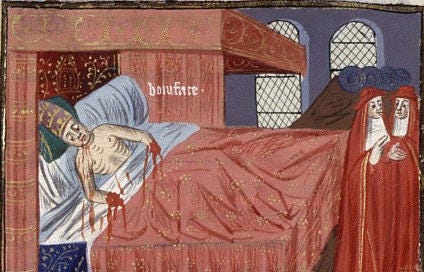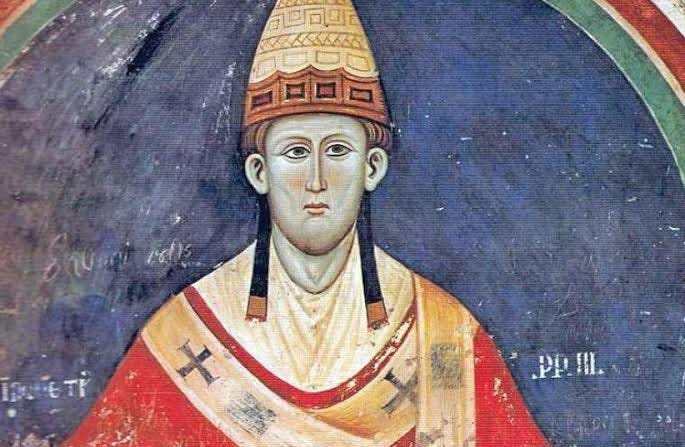THE TOP FIVE MEDIEVAL POPES
As cardinals get ready to elect Francis I's successor, here are my five favourite popes from the Middle Ages...
Before we start, just wanted to let you know that Season 7 of my podcast This Is History: A Dynasty To Die For launches today.
This season is all about the wild psychodrama of Richard II and Henry Bolingbroke. We’re now on Patreon as well as Apple Podcasts, Spotify and all other good podcast platforms.
Enjoy the show.
Next week in Vatican City, cardinals of the Catholic Church will get together in conclave to elect a new Pope. I’m a fan of conclaves. It’s not that I have ever been in one, nor am I likely ever to be invited. But I do enjoy a good medieval ceremony.
The idea of a conclave dates back to the thirteenth century. In 1276 the voting chapter of cardinals were locked up in a room in Tuscany, on basic rations, and told to get on with choosing a new boss.
The man they were replacing - Gregory X - had rewritten the rule-book on pope-picking, since it had taken nearly three years to elect him. His new rules were designed to starve and bore the electoral college into making their minds up. They were to live in monastic simplicity as they chose, and their regimen would become stricter and more severe the longer they strung the job out.
So much for conclaves. Whom the cardinals pick as pope this time is a matter of live debate. The bookies favour Pietro Parolin, who is the Vatican’s long-serving secretary of state; they also like the liberal Filipino Luis Antonio Tagle (aka ‘Chito’) and the Ghanaian Peter Turkson.
I am not a betting man - gambling is the only vice I have been spared, thank God. So I make no predictions about the future, and shall stick here to naming my top five favourite medieval popes - the best of whom I have left until last.
Who would make your list?
Innocent III (r. 1198-1216)
Perhaps the grandest of all the medieval popes, Innocent (born Lotario dei Conti di Segni) was a bombastic writer (author of the bestselling ‘On the Misery of the Human Condition’) and maximalist when it came to grinding the boot of the Holy Church into the faces of all those who cast a defiant eye in his direction.
He greatly expanded the use of the crusade, aiming it not only at traditional enemies in the Holy Land, Spain and the Baltic, but at rulers and perceived heretics whom he saw as a threat to the Church closer to home.
Although Innocent preached the Fourth Crusade and convened the Fourth Lateran Council, he is probably best known for his long-running rumble with King John, in which he laid Plantagenet England under Interdict and excommunicated the English king, before switching up to back John against his barons and annul Magna Carta.
Boniface VIII (r. 1294-1303)
Best known in this house as the Pope who chewed his own hands off.
Keep reading with a 7-day free trial
Subscribe to History, Etc to keep reading this post and get 7 days of free access to the full post archives.





